The views expressed in our content reflect individual perspectives and do not represent the authoritative views of the Baha'i Faith.
What’s the best way to support your local healthcare professionals during this crisis? We asked doctors to tell us what they need — both the tangible and the intangible.
Abdu’l-Baha, the son of Baha’u’llah, the prophet and founder of the Baha’i Faith wrote that doctors are endowed with “two powers: one to undertake physical healing and the other spiritual healing. Matters related to man’s spirit have a great effect on his bodily condition”. Never have we seen this more than during the current crisis. While doctors’ medical knowledge saves patients, we can’t discount the valuable contribution they make with their service and sacrifice to patients’ emotional health and their determination to get better.
“our means to help may be limited. But there’s still a lot we can do”
So how can we give back to the people that are keeping so many of us healthy and safe? For those of us staying at home with non-essential careers, our means to help may be limited. But there’s still a lot we can do.
I asked four doctors to share what would be most helpful to them and their colleagues. Here’s what they said.
Support Each Other Emotionally
“Helping your community tackle some of the spiritual and social turmoil they are facing is a potent way to help the infrastructure of healthcare,” says Adeeb Zaer, a Chicago-based emergency medicine physician. “In addition to the ill, many people are coming to the ED [Emergency Department] because they are scared, alone, or want to be comforted. They want to be told that they’re going to be OK. They need more help with their depression or anxiety. Undomiciled patients are coming to the ED because they are being kicked out of their shelters and don’t have a place to go. This virus directly affects our physical body but is clearly straining all aspects of our lives.”
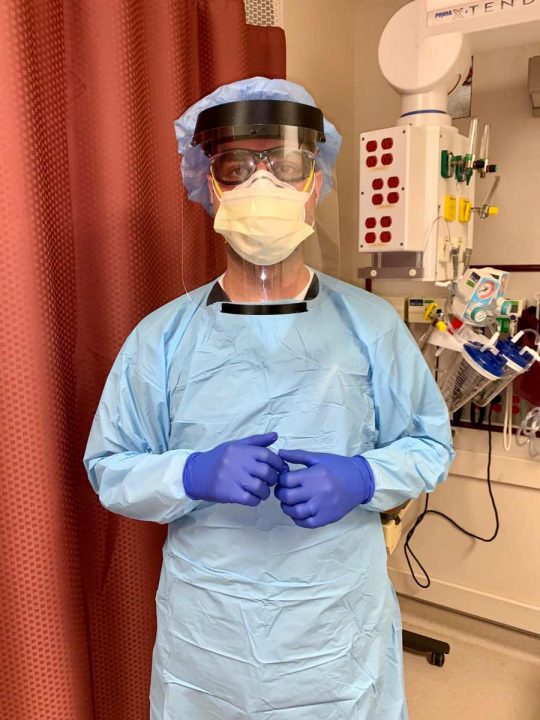
Adeeb says he’s been getting guidance from the March 2020 message from the Universal House of Justice, the international governing body of the Baha’i Faith, which addressed the pandemic: “The elevated conversations that have occurred as a result, whether remotely or in person, have been a source of comfort and inspiration to many. Such efforts on your part provide a valuable service at this hour when many souls are perplexed and dismayed, unsure of what will be.”
Adeeb works in an underserved community hospital in Chicago, where there have been thousands of confirmed COVID-19 cases. He hopes that we can all contribute to having these meaningful conversations with people who desperately need the support of others. “We are all part of one body and help to your fellow man is intertwined and integral to helping healthcare professionals on the front line,” he says.
Support Doctors Emotionally
“Words of encouragement are helpful,” Adeeb says, “but the sacrifices are many, including fear, time apart from family, and seeing death and tragedy far too often.”
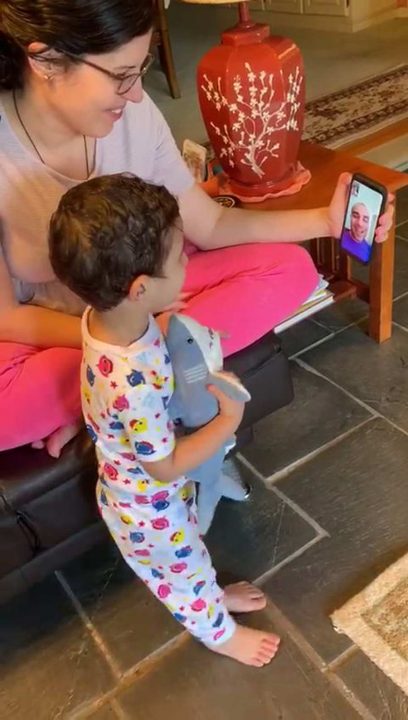
This is particularly relevant at this time, as the news shows us more and more evidence of how people’s panic may make them put their own fear over the wellbeing of their neighbors, who are often essential workers such as healthcare professionals — discouraging them from continuing to live nearby, or shying away from them in public spaces.
Doctors are also having to make difficult decisions to protect their families from possible infection with the virus. Out of concern for their health, Adeeb’s wife, who is 27 weeks pregnant, and his 2-year-old son recently left to stay with his parents for a while. This has been hard on Adeeb emotionally. “I anticipate this will only naturally increase the stress of the work needed to be done, and is by far the biggest sacrifice asked for by me during this crisis thus far,” he says.
“The best way to help us doctors is by treating us with respect (which we sometimes don’t receive at all), putting yourselves in our shoes and understanding that we are also human,” says Sheida Maher, a medical resident working in Santiago, Chile.
Sheida highlighted the importance of being patient with healthcare professionals as they face what is probably the most challenging moment of their career. “We also make mistakes, we also need to rest, we also suffer and sometimes we burn out. We aren’t infallible and, although there are some doctors that leave much to be desired, most of us are normal, good people and like everyone, we just want to help.”
Reach out to the doctors near you. Maybe you can offer support by helping them do groceries or other chores their busy schedule won’t allow them to tackle, or simply offer them encouraging words.
Donate Materials to Hospitals
Doctors I spoke to were adamant about the need for donations of personal protective equipment (PPE). “I would like to encourage readers not accumulate personal protective equipment at home. If you have unused extra face masks or N-95s at home, please donate to your local hospital,” says Daniela Pimentel, a neurology resident who is also an active member of a committee to address the necessary changes to neurology-related hospital activity brought on by the pandemic. Doctors need masks, gloves, and other protective equipment much more than the rest of us, as they are in constant contact with potential COVID-19 cases. However, check with your local hospital first to see what their needs are. “Some hospitals are asking for cloth masks to be sewn, while others aren’t,” Adeeb says. Not all hospitals allow their staff to wear homemade PPE.
donate to organizations making or donating masks and other PPE
If you can’t donate the equipment itself, you can donate to the many organizations with programs to help local hospitals. Gabriela Abrishamian-Garcia, a doctor working at a hospital in New York City, the epicenter of the virus in the United States, says people should “donate to organizations making or donating masks and other PPE (gowns, gloves, face shields, etc). But especially masks!”
Stop the Spread of Misinformation
A difficult challenge that has arisen as a result of the pandemic has been the spread of misinformation through social media and messaging apps. Both Facebook and Twitter have cracked down on conspiracy groups, and WhatsApp has limited users’ ability to forward messages to too many people in an effort to curb misinformation.
“This pandemic is changing world dynamics and the way we as individuals approach our everyday life,” Daniela says. She was troubled seeing the rise of extremist conspiracy theories and the effects these have had on both her patients and her colleagues. “Recently, rumors about COVID-19 spreading via 5G networks have come up in social media. Because these technologies are part of the tools we need in order to keep everyone safe and a large way we are delivering healthcare now, I encourage everyone to be selective in terms of their trusted sources of information.”

In many cases, when patient symptoms are not severe, doctors can also work from home and limit their contact with others. “Most hospitals and clinics are relying on telemedicine to keep patients safe while enforcing social distancing,” Daniela says. Basically, we see patients at home from home to prevent unnecessary exposures to COVID-19. It is very important for us to rely on technology to keep in touch. I would suggest for the community to embrace and engage in telemedicine encounters. By turning on your cameras and picking up the phone, you can help us see you (even if remotely) and hear your concerns so we can keep you as healthy and safe as possible.”
Stay Home
We’ve all constantly heard healthcare professionals, politicians, and even celebrities advising us to stay home as much as possible. “With social distancing you can help ‘flatten the curve’,” Daniela explains. “This does not necessarily mean less people will become infected overall, but the hope is to at least decrease the speed or rate at which persons become infected. This way there is a better chance healthcare providers and hospitals will have the necessary equipment, resources, and space to provide adequate care for everyone. The goal is not to overwhelm the healthcare system so everyone can be cared for appropriately.”
We can help by emotionally supporting each other, supporting doctors, donating equipment, and stopping the spread of misinformation. But “on an operational level,” Adeeb says, “one can help by staying home as much as possible.”
In places where people have made strict lifestyle changes to keep the virus from spreading, statistics have shown a sharp decrease in COVID-19 cases and an easier path towards recovery. Baha’u’llah wrote that Baha’i Writings say: “The earth is but one country, and mankind its citizens.” As citizens trying to do the best by our doctors and for our brothers and sisters all around the globe, staying home to protect each other is the best we can do.


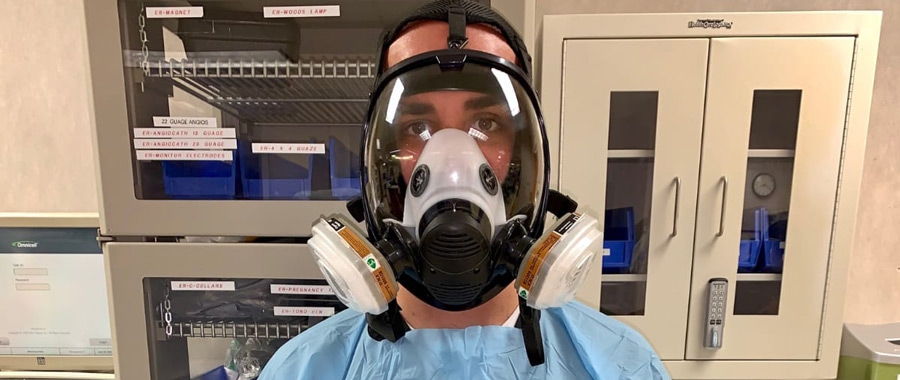

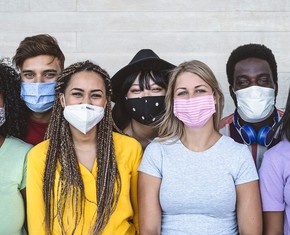

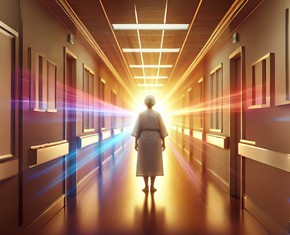









Comments
Sign in or create an account
Continue with Googleor